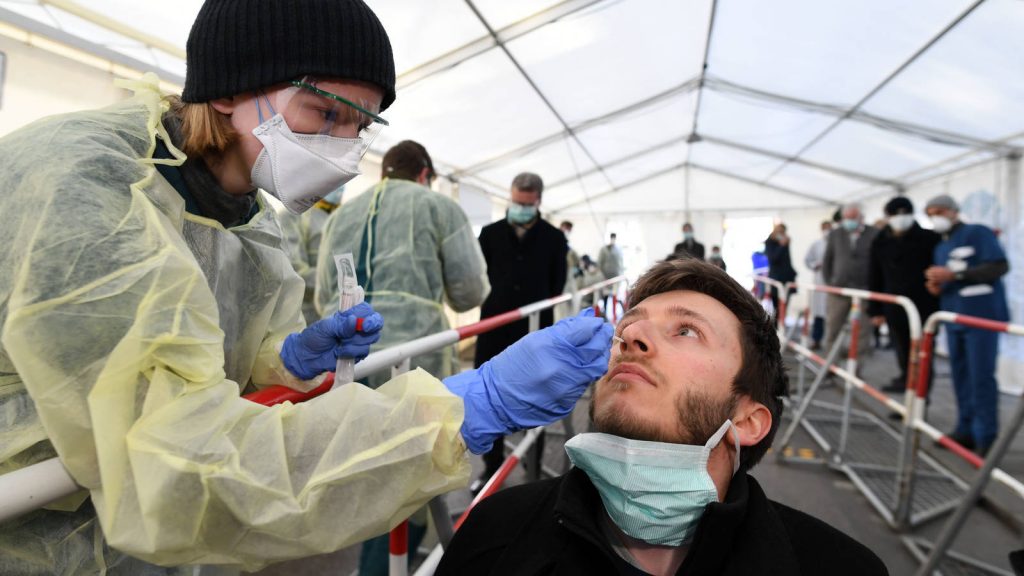Tens of thousands of residents in parts of London and other areas of the UK are being asked to take urgent coronavirus tests after more than 100 cases of the South African variant were detected.
Health officials said 11 people had been identified over the last five or six days who have tested positive for the variant, but who have no links to travel. They include cases in Surrey and Ealing.
Public Health England has identified 105 cases of the Covid-19 variant first identified in South Africa since 22 December.
The additional surge testing and sequencing is being deployed in a number of locations where the variant has been found to identify further cases and stop its spread.
Every person over 16 living in these locations is being strongly encouraged to take a Covid test this week, whether they are showing symptoms or not. It is understood it will involve testing for around 80,000 people.
Mobile testing units are being sent to affected areas. In some neighbourhoods, home testing kits are also being sent to households. Quick Covid tests will be carried out door-to-door.
Working in partnership with local authorities, enhanced testing and sequencing will be targeted within specific postcode areas. These postcodes are London (W7, N17, CR4); West Midlands (WS2); East of England (EN10); South-East (ME15, GU21); North West (PR9).
The affected postcodes in London are in Ealing, Tottenham and Mitcham.
Health Secretary Matt Hancock said: “It is vital that we do all we can to stop transmission of this variant and I strongly urge everyone in these areas to get tested, whether you have symptoms or not. The best way to stop the spread of the virus – including new variants – is to stay at home and follow the restrictions in place. Until more people are vaccinated this is the only way we will control the spread of the virus.
“The UK is a global leader in Covid-19 genomics, and because of this, we have been able to identify new strains of the virus and take decisive action. We continue to closely monitor new variants, here and around the world, and in addition to our already extensive testing service, we are making surge testing capacity available to affected areas.”
